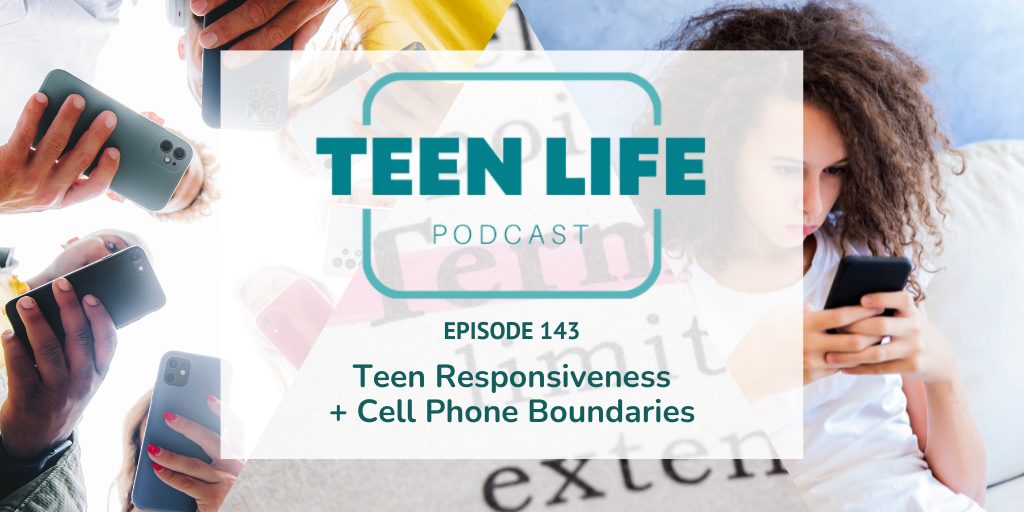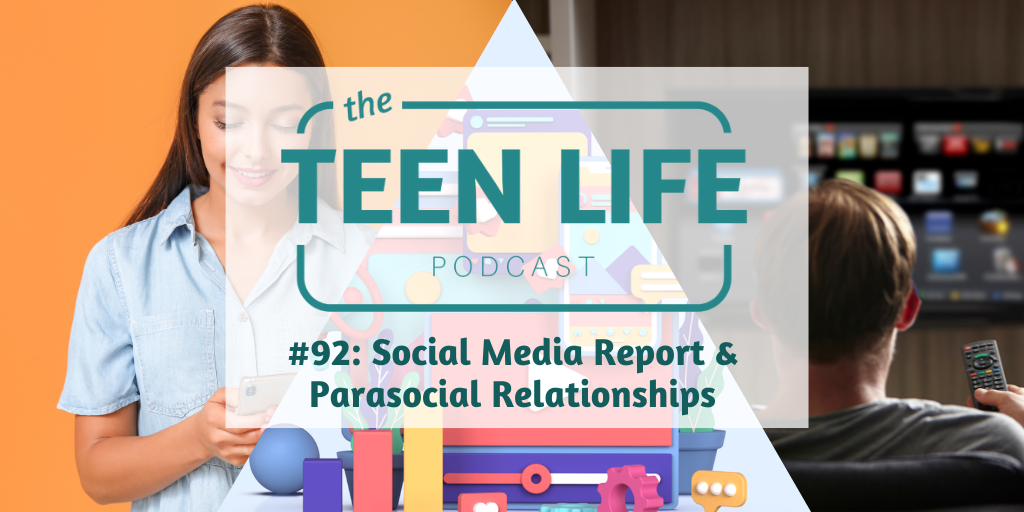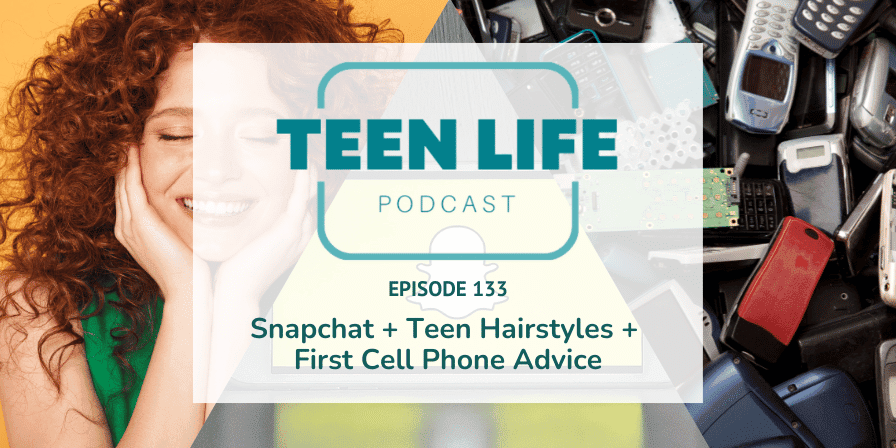Podcast: Play in new window | Download
An Adult Guide to Navigating Cell Phone Boundaries for Teens
In the digital age, cell phones have become an integral part of our daily lives, especially for teenagers. They serve as a means of communication, entertainment, and learning. However, as teachers and parents, guiding teens to establish healthy boundaries with their cell phones is crucial for their overall well-being and development.
Of course, there are lots of opinions on how to approach this topic, but we’ve put together some suggestions to get you started.
Here are some essential tips to navigate cell phone boundaries for teens:
Establish clear expectations.
Communication is key. Set clear guidelines on when and how cell phones should be used. Discuss the importance of responsible usage, including limitations on screen time during meals, study hours, and bedtime. Collaborate with teens to create a balanced plan that respects their independence while ensuring accountability.
Check out Josh Shipp’s free download to create a cell phone contract with your teen.
Educate teens on digital wellness.
Teach teens about the concept of digital wellness. Encourage them to take breaks, engage in physical activities, and maintain a healthy balance between online and offline activities. Discuss the impact of excessive screen time on mental health and the importance of managing their online presence responsibly.
You might even consider a digital safety course like this one for schools or this one for families.
Lead by example.
Parents and teachers serve as role models. Demonstrate healthy cell phone habits by practicing what you preach. Show teens the importance of being present during conversations, meals, and family time without being glued to screens. Model self-discipline in your own technology use.
Be a safe place to talk.
Create a safe environment where teens feel comfortable discussing their online experiences, concerns, and challenges. Encourage open dialogue without judgment. Offer guidance on handling cyberbullying, privacy settings, and navigating the digital world responsibly.
Implement tech free zones.
Designate specific areas or times as technology-free zones, such as bedrooms or family gatherings. Encourage face-to-face interactions and quality time without the distraction of cell phones. Emphasize the importance of real connections over virtual ones.
Utilize Parental Controls and Monitoring Tools
Explore parental control features provided by cell phone carriers or third-party applications. These tools can help regulate screen time, block inappropriate content, and track usage patterns. However, balance monitoring with trust and open communication to build a healthy relationship based on mutual respect.
Encourage positive usage.
Guide teens to explore constructive ways to use their cell phones. Encourage them to access educational apps, creative content, or volunteering opportunities online. Help them recognize the potential of technology for personal growth and skill development.
Stay informed and updated on the latest trends, apps, and pitfalls.
Technology evolves rapidly. Stay informed about the latest trends, apps, and social media platforms popular among teens. Understanding their digital landscape enables better guidance and support.
Subscribe to our weekly updates for tips, tricks, trends, and ways to connect with your teen.
Collaborate with school initiatives.
Teachers can integrate lessons on digital citizenship and responsible technology use into the curriculum. Engage students in discussions, workshops, or activities focused on online safety, critical thinking, and ethical behavior in the digital world.
Don’t panic.
Establishing healthy cell phone boundaries for teens requires a collaborative effort between teachers, parents, and teens themselves. By fostering open communication, setting clear expectations, and being positive role models, we can empower teens to navigate the digital world responsibly while prioritizing their well-being.
Remember, it’s not about eliminating technology but about teaching teens to use it mindfully and purposefully, creating a balanced approach that enriches their lives without overshadowing other essential aspects of their growth and development.
Also in this episode:
- Teen terms that might not mean what you think.
- Why your teen isn’t responding to your text messages.
In this episode, we mentioned or used the following resources.
- The New York Times: What Students Are Saying About Ignoring Text Messages
- EdWeek: Cellphone Bans Can Ease Students’ Stress and Anxiety, Educators Say
- Teen Life TikTok
- Teen Life Podcast: Cell Phones | Bark
- Music by Tobin Hodges and Luke Cabrera
Have a question?
If you have a question about something you heard or just want to give us some feedback, please leave us a comment below. We would love to hear from you!

Karlie Duke
Communications Director

Tobin Hodges
Program Director

Caleb Hatchett
Podcast Host
Caleb Hatchett | Podcast Co-Host
Caleb loves helping teenagers take ownership of their faith and relationships. He graduated from Abilene Christian University with a degree in Youth and Family Ministry and is currently Student Ministry Director at Jenks Church in Oklahoma.
Tobin Hodges | Program Director
Tobin’s entire career has been centered around students and teens from all walks of life. He has a passion for helping teens be their best selves. As Program Director, he loves working directly with school staff and students through Teen Life Support Groups. Tobin has a Bachelor’s Degree in Music from Texas Tech University.
Karlie Duke | Director of Communications
Karlie has always had a heart for teenagers. Through her role at Teen Life, she loves to showcase the amazing stories coming out of Support Groups, but she is especially passionate about helping adults and teenagers find connection. Karlie has a BS in Communications with a minor in Family Studies from Abilene Christian University.












